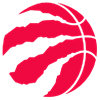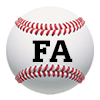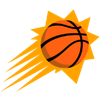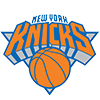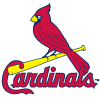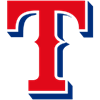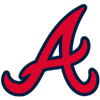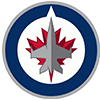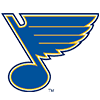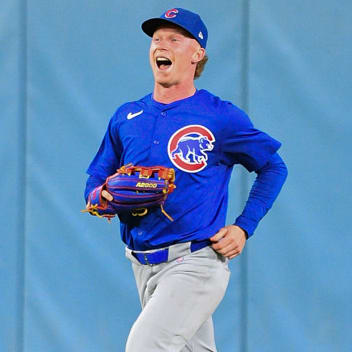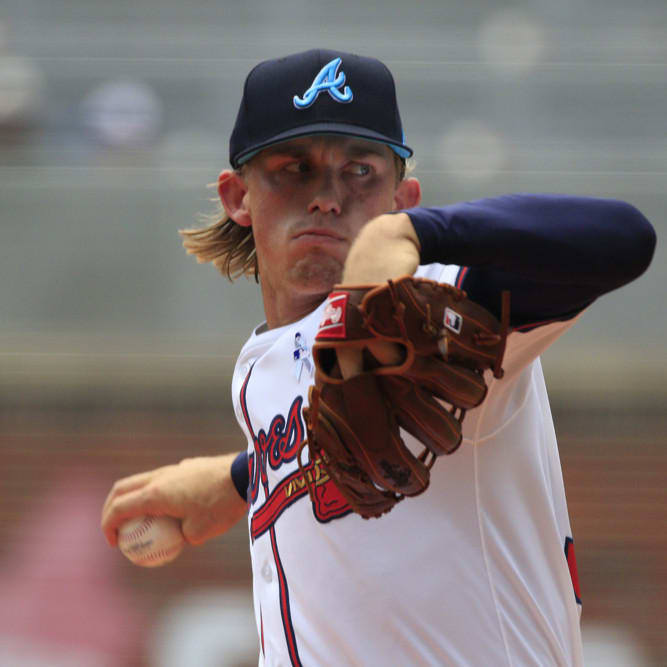The Phillies have become a dominant force in the National League and their acquisition of Cliff Lee this past winter has them poised to repeat as NL East champions for the fifth year in a row. The loss of Jayson Werth to the Nationals will be a blow to the team's offense but the Phillies remain formidable with Ryan Howard and Chase Utley in the middle of their lineup. The Braves figure to be the Phillies' main challengers again this season for the division while the Marlins are likely a third place club. The Mets and Nationals are at least a couple years away from being a threat.
Offseason Moves:
Signed Cliff Lee to a five-year contract.
Lee lifted Texas to an appearance in the World Series after a midseason trade from Seattle. His lone struggles during the regular season came as he was battling some back issues, and he entered the offseason as the premier pitcher on the market. He decided to sign with the Phillies following a long courtship by both the Rangers and the Yankees, and gives the Phillies a dynamic rotation behind Roy Halladay and ahead of Roy Oswalt and Cole Hamels. He's been among the most durable and dependable starters since 2008 and there's no reason to think he won't remain so for several more seasons.
Signed Jose Contreras to a two-year contract.
The Phillies took a chance on Contreras last year after watching him work as a reliever with the Rockies at the
The Phillies have become a dominant force in the National League and their acquisition of Cliff Lee this past winter has them poised to repeat as NL East champions for the fifth year in a row. The loss of Jayson Werth to the Nationals will be a blow to the team's offense but the Phillies remain formidable with Ryan Howard and Chase Utley in the middle of their lineup. The Braves figure to be the Phillies' main challengers again this season for the division while the Marlins are likely a third place club. The Mets and Nationals are at least a couple years away from being a threat.
Offseason Moves:
Signed Cliff Lee to a five-year contract.
Lee lifted Texas to an appearance in the World Series after a midseason trade from Seattle. His lone struggles during the regular season came as he was battling some back issues, and he entered the offseason as the premier pitcher on the market. He decided to sign with the Phillies following a long courtship by both the Rangers and the Yankees, and gives the Phillies a dynamic rotation behind Roy Halladay and ahead of Roy Oswalt and Cole Hamels. He's been among the most durable and dependable starters since 2008 and there's no reason to think he won't remain so for several more seasons.
Signed Jose Contreras to a two-year contract.
The Phillies took a chance on Contreras last year after watching him work as a reliever with the Rockies at the end of the 2009 season. General Manager Ruben Amaro Jr. said team scouts noticed improved stuff from Contreras in a relief role and figured he could help the Phillies in the middle innings. Contreras did more than help; he established himself as a dominant late-inning option and spent some time closing games while Brad Lidge struggled to return to form after an injury. Contreras did go through a bit of a rough patch in the middle of the year but was able to right the ship and closed out the year strong. He is able to be successful in relief thanks to a slight uptick in his velocity now that he can go all out, and his starter's arsenal of pitches which includes a nasty splitter. The Phillies envision having Contreras work the seventh inning in front of Ryan Madson and Lidge. That puts Contreras second in line for saves making him a nice endgame pickup in NL-only or very deep mixed leagues.
Signed J.C. Romero to a one-year contract.
The Phillies let Romero go at the end of last season but opted to bring him back when his price tag dropped to around $1 million. Romero had elbow surgery prior to last season and began the year on the disabled list after needing some additional time to build up arm strength. He posted a 3.68 ERA but never seemed to fully get back in a groove on the mound, and his 28:29 K:BB ratio is an indication of just how difficult it was for him to find the plate at times during the season. It wouldn't be surprising to see his peripherals improve now that he is more than a year removed from elbow surgery, but he should be working primarily in a lefty specialist role leaving him with little fantasy value.
Singed Robb Quinlan, Brian Bass, Delwyn Young, Brandon Moss, Matt Miller, Jeff Larish, Eddie Bonine, Dan Meyer, Ryan Feierabend, Juan Perez, Matt Anderson, Erik Kratz, Joel Naughton, Pete Orr, and Josh Barfield to minor league contracts.
Quinlan and Young figure to have the best chances of earning a bench job with the Phillies this spring given their ability to play multiple positions while providing some offensive skills as well. Meyer has a shot at earning a bullpen job if he can bounce back after last year's poor showing but he'll have to beat out Antonio Bastardo as J.C. Romero will have one left handed relief spot locked up heading into camp. The others are likely to open the year in the minors, providing the Phils with organizational depth.
Selected Michael Martinez from the Washington Nationals in the Rule 5 draft.
Martinez, who was selected in the Rule 5 draft by the Phillies this winter, hit .272/.312/.408 in 133 games between Double-A and Triple-A last season. Martinez is expected to get a long look for a bench job this spring. He'll be competing with veterans Wilson Valdez, Delwyn Young and Pete Orr.
Claimed Carlos Rivero off waivers from the Cleveland Indians.
Rivero had his second straight disappointing season at Double-A Akron, hitting just .232 and slugging .325. His inability to control the strike zone prevents him from taking advantage of his size (6-3, 220) as he's never slugged higher than .411 in any minor league season. He'll turn 23 in May and needs to show signs of development.
Traded Sergio Escalona to Houston Astros for Albert Cartwright.
Escalona failed to take a major step forward last season. He posted a nice K/9IP ratio at Double-A last season, but he was also old for the level and he gave up too many free passes. He was traded to Houston in January where he has a better shot of winning a lefty specialist role in the bullpen. However, he's is a fringe relief prospect at best and should not be on fantasy radars. Cartwright struggled at Double-A last year and figures to head back there to start the 2011 season. He's not a prospect.
Released Jesus Sanchez and Yohan Flande.
The Phillies cut ties with two minor league pitchers that had been protected on their 40-man roster. Sanchez, who signed with the Brewers, is the better bet of the two to see time in the majors in his career. Flande got picked up by the Braves and was given an invite to spring training.
Projected Lineup/Rotation/Bullpen:
Lineup (vs. RH/ LH):
1. SS Jimmy Rollins
2. 3B Placido Polanco
3. 2B Chase Utley
4. 1B Ryan Howard
5. LF Raul Ibanez
6. CF Shane Victorino
7. RF Domonic Brown/Ben Francisco
8. C Carlos Ruiz
The big question entering spring training is who will hit fifth for the Phillies this year after Jayson Werth left to join the Nationals. We think Ibanez is the likely candidate against right handed pitching. Francisco would be the choice to hit fifth against lefties if he wins the right field job this spring. Victorino could see some time in the leadoff spot if Rollins struggles again this year, otherwise, he could hit sixth or seventh.
Starting rotation:
SP1 Roy Halladay
SP2 Cliff Lee
SP3 Roy Oswalt
SP4 Cole Hamels
SP5 Joe Blanton/Kyle Kendrick/Vance Worley
There is no question about the top four of this rotation. Any of these guys are number one starters on almost any other team in baseball. The fifth spot will be Blanton's if he is not traded. Otherwise, Kendrick and Worley figure to compete for the job with the loser heading to the bullpen or the minors.
Closer: Brad Lidge
Key bullpen members: Ryan Madson, Jose Contreras
Manager Charlie Manuel has unending faith in Lidge so he will open the year as the team's closer and will likely be able to hold onto the job even if he falters in the early going. Madson is waiting in the wings for his opportunity.
Notes of Importance, Fantasy and Otherwise:
As the Phillies approach spring training the biggest questions are:
1. Is Domonic Brown ready to be an everyday rightfielder in the majors? Brown is considered by many to be the best offensive prospect in baseball. He has displayed power, speed and a very good eye at the plate throughout his time in the minors. However, when Brown received his first opportunity in the majors last season he did not capitalize on it and struggled in his 62 at-bat audition as Major League pitchers exploited his long swing. The Phillies sent Brown to the Dominican Winter League to get some extra at-bats but brought him home after nine games claiming Brown felt sluggish. General manager Ruben Amaro Jr. said Brown will be given a chance to compete with Ben Francisco, John Mayberry, Robb Quinlan and Ross Gload for a starting outfield job this spring, but emphasized that Brown will not be handed a job. Our guess is that the Phillies will feel more comfortable beginning the year with a veteran in right field (likely Francisco) and they will send Brown back to Triple-A for some additional at-bats and possibly to make some adjustments to his swing. He could force his way back up by mid-season and then could be in the majors to stay.
2. Can Brad Lidge be trusted to close out games for the Phillies?
The obvious answer to this question after two years of ups and downs for Lidge is no. Perhaps we should ask, can Lidge be an asset to a fantasy roster this year? We think so. Lidge missed the beginning of last season with an elbow injury and then really struggled to find his groove when he came back. Manager Charlie Manuel refused to demote Lidge, but he was eventually rewarded for his faith in his closer. Lidge finished the final two months of last season in spectacular fashion, allowing only two runs while racking up 17 of his 27 saves. Lidge has seen his fastball velocity dip over recent years which has forced him to rely on his slider more than ever. The final two months of last season give some faith that Lidge can continue to be effective despite his reduced velocity, but Ryan Madson will be waiting to take over closing duties if Lidge falters.
3. Will Jimmy Rollins stay healthy and bounce back at the plate?
Rollins accumulated just 350 at-bats last season as he struggled with injuries to his legs and had multiple stints on the disabled list. When he was in the lineup, Rollins often got under balls and popped them up rather than driving them to the outfield as he had done throughout his career. Rollins displayed the best walk rate of his career last season, but his .243 batting average was a career low. Rollins has now posted a BABIP near .250 two years in a row, and his career mark is about .290. While he might not return to that level, we are willing to bet on some improvement this year and a subsequent improvement in his batting average. Rollins practiced yoga in the offseason in hopes of avoiding the hamstring injuries that plagued his 2010 season. If he can stay healthy there is no reason that he can't swipe 20-plus bases and hit around .270. He should be a nice gamble in fantasy leagues if he comes at a discount on draft day.
Strengths
Times have changed for the Phillies. The past few seasons we have told you the offense was the strongest area of this club. That changed with the addition of Oswalt last year and Lee this past winter. The Phillies are now a club that is built to win with starting pitching. Their offense can still be a strength for the team but they are clearly counting on starting pitching to carry this squad back to the playoffs.
Weaknesses
The major weaknesses for this team are bullpen depth and lack of a quality infielder that can step in if Utley, Rollins or Polanco get hurt. Of the two, the bullpen is probably the biggest concern given shaky performances by guys like Danys Baez and Romero last year and a few openings that will likely go to untested young arms.
Sleepers
Rising: On a team loaded with proven veterans it is difficult to find a good candidate for this category. Given that disclaimer, Cole Hamels is probably the best choice for this spot. Before last season we told you that Hamels' 2009 numbers looked poor on the surface but that the underlying metrics indicated he was in line for a bounce-back season. Hamels lived up to our expectations and rewarded owners that took a chance on him with a career-high 211 strikeouts and a career-low 3.06 ERA. Hamels' success was due in part to the addition of a cut fastball to his arsenal and improvement with his curveball, which gave him two additional pitches to use besides relying his excellent changeup to keep hitters off balance. Hamels also rededicated himself in the offseason and was able to avoid the meltdown innings that plagued him in 2009. Draft him with confidence as Hamels is only 27 years old so the best may be yet to come.
Declining: Raul Ibanez struggled mightily for the first half of last season but manager Charlie Manuel stuck with
him and was rewarded with a .309/.375/.494 second-half slash line from his left fielder. Despite that solid finish, Ibanez was nowhere near the 34 home runs he posted in 2009 and at age 38, Ibanez will be lucky to hit more than 20 home runs in a season moving forward. He remains a decent investment in NL-only or deep leagues as he can hit for a decent average and is part of one of the better lineups in the NL. That being said, the Phillies may have less patience with Ibanez this year if he struggles out of the gate as he is in the last year of his contract with the club.
Sleeper: Ben Francisco spent the majority of last season on the Phillies' bench. Manager Charlie Manuel gave Francisco an opportunity to platoon with a struggling Raul Ibanez around midseason, but Ibanez's bat woke up around that time and Francisco went back to his reserve role. Francisco has displayed a mediocre eye at the plate during his time in the majors but he has a little pop and can swipe a few bags. He's a bit of a sleeper for this upcoming season as the Phillies are expected to have Domonic Brown in camp to compete for the starting job in right field. If Brown flops, Francisco could get an opportunity to play fairly regularly - likely in a platoon with Ross Gload or another outfielder. Francisco will need the stars to align, but this is a situation worth keeping an eye on this spring by those in NL-only and deep mixed leagues.
Supersleeper: Ross Gload struggled to accumulate at-bats last season until Ryan Howard went down with an injury, but made the most of his opportunities when he got them however and managed decent numbers despite seeing only 128 at-bats. Howard rarely takes a day off so unless injuries strike again, Gload figures to see limited action at first base. General Manager Ruben Amaro Jr. indicated this offseason that Gload could be used in a platoon with Ben Francisco if rookie Domonic Brown fails to seize the starting right field job in camp this spring. That would give Gload some value in deeper NL-only leagues as he'd pick up a decent number of at-bats.
Roster
Here's a rundown on the rest of the team.
Danys Baez - Baez began last season as a sleeper candidate for saves as he was considered next in line behind Ryan Madson, who was filling in for injured closer Brad Lidge. Unfortunately for the Phillies, Baez struggled, and by the end of the season manager Charlie Manuel was hardly using him outside of mop up duty. The outlook for 2011 is not good for him as a result. He has not cut his walk rate over the years and can no longer overpower hitters to get himself out of the trouble he creates by issuing free passes. Baez should have a role in middle relief for the Phillies this year if he can put together a decent spring training. A poor camp may be all the Phillies need to decide to cut their losses and buy out the remaining year on Baez's contract.
Antonio Bastardo - Bastardo split his time between the majors and Triple-A last season. He is primarily a two-pitch pitcher with a low-to-mid 90s fastball and a biting slider. His double-digit K/9IP ratios in both the minors and majors indicate how tough he can be on batters, but he also hurts himself by issuing a few too many walks. The Phillies will likely give Bastardo an opportunity to fill one of their bullpen spots this season. If he can cut down on the walks, Bastardo could establish himself as one of the better left-handed bullpen arms in the game.
Joe Blanton - Looking at surface numbers alone it would appear that Blanton took a bit of a step back last season. His ERA rose nearly a full run to 4.82 but his FIP of 4.43 indicates he was essentially the same pitcher we saw in 2009. Blanton does not do a lot to help fantasy owners as his strikeout rate is average, and he tends to give up a lot of hits, which takes a toll on your WHIP. Blanton does have solid control, however, and can help your team with wins when he is pitching well. The key is figuring out when to start him and when to keep him on your bench - something that is easier said than done and now his future with the Phillies is in doubt following the re-acquisition of Cliff Lee.
Roy Halladay - NL Cy Young, perfect game, and no hitter in the playoffs - not bad for a first season with a new club, in a new league. Halladay was everything the Phillies expected and more after they obtained him from the Blue Jays. Halladay saw his strikeout totals jump up in the NL but his strikeout rate basically held steady from his 2009 season. He cut back on his walks and posted an amazing 1.1 BB/9IP ratio over his career-high 250.2 regular season innings. Typically that workload would be a cause for concern, but Halladay is one of the best conditioned pitchers in baseball. He hasn't pitched fewer than 200 innings since 2005, and should be one of the first pitchers off draft boards again this season.
Ryan Howard - Howard failed to top 40 home runs for the first time since 2005, the year he broke into the majors. He missed some time with an ankle injury, but he likely would not have topped 40 home runs even if he managed to stay healthy the whole year as his 21 percent HR/FB rate was the lowest of his career since he became a full-time player. Manager Charlie Manuel said this winter that Howard never fully recovered from the ankle injury and that may have affected his ability to drive the ball the last few months of the season. Howard will be healthy heading into spring training and remains one of the premier sluggers in baseball. He's still in the prime of his career and for that reason we believe he is likely to bounce back and post a home run rate that is more in line with his career norm.
Kyle Kendrick - Kendrick spent the majority of last season in the Phillies' rotation before eventually losing his job to Vance Worley at the end of the year. Kendrick relies on his sinker to get outs and when the pitch is working for him he can be successful. If it isn't, he gets hit pretty hard as he doesn't have the stuff to put hitters away by missing bats. He will be competing with Worley and perhaps a veteran pitcher or two this spring for the fifth spot in the Phillies' rotation. We expect him to earn the job, but recommend that fantasy leaguers avoid rostering him.
Ryan Madson - Madson began last season as the Phillies' closer when Brad Lidge was forced to begin the year on the disabled list. Madson picked up five saves before breaking his toe when he foolishly kicked a chair after a poor outing. When he came back around the All-Star break, manager Charlie Manuel leaned heavily on Madson, who settled back into his eighth-inning setup gig. Madson is next in line for saves in Philly and he has the stuff to be successful in that role. Madson makes a good target at the end of drafts given Lidge's recent injury history, but he also has the potential to be an excellent keeper with Lidge likely headed for free agency after the 2011 season.
John Mayberry - After shuttling between Triple-A and the majors in 2009, Mayberry failed to earn a recall last year until rosters expanded in September. He had an unspectacular year at Triple-A but the Phillies are expected to give him a long look for a bench job this spring. Mayberry has some power but he also has a long swing which makes him prone to striking out. He's had some success against lefties in the minors so he looks like a platoon outfielder at best. A strained calf this offseason forced him from the Arizona Fall League after one game, but he's expected to be ready for spring training.
Roy Oswalt - Oswalt came to the Phillies in a midseason trade and was dubbed the team's third ace as he joined a rotation led by Roy Halladay and Cole Hamels. Oswalt lived up to expectations, going 7-1 with a 1.74 ERA for the Phils. Amazingly, Oswalt posted the second-highest K/9 rate of his career in 2010, just one year after it looked like he was starting to head downhill. His 2.76 combined ERA was a little lucky as his 3.27 FIP indicates, but Oswalt proved he still has what it takes to get hitters out. Expect another solid season from the veteran in 2011.
Placido Polanco - Polanco played through most of the 2010 season with a painful bone spur in his left elbow that forced him to miss some time and to receive multiple cortisone shots to stay on the field. Despite the injury, Polanco was one of the most consistent hitters the Phillies had all season. He's one of the best contact hitters in the game and figures to score plenty of runs again this season hitting in front of Chase Utley and Ryan Howard. Polanco had surgery on his elbow to remove bone spurs in late October and is expected to be ready for spring training.
Carlos Ruiz - Ruiz had the best offensive season of his career in 2010. He hit more than .300 for the first time and posted a team-high .400 OBP. He may not be able to match those numbers again this season, but we don't expect his average to drop too much given his solid eye at the plate. Ruiz doesn't have a ton of power, but it wouldn't be shocking to see him hit double-digit home runs one of these years as he's been close twice now. Ruiz isn't a player who will carry your fantasy team, but he's a rare catcher who doesn't hurt your chances either.
Brian Schneider - Schneider spent last season as Carlos Ruiz's backup and is set to do so again this year. That role should yield about a start a week provided Ruiz stays healthy. Schneider has shown the ability to hit around .250 with a few home runs when he gets consistent playing time so he might be OK to use in a deeper NL-only leagues should Ruiz have to miss any time with an injury.
Chase Utley - Utley missed a significant chunk of time last season with a severely sprained thumb. That injury took a toll on his counting stats, but he may not have topped 30 home runs or 20 steals even if he had played the whole year. Utley is no longer the premier second baseman in baseball, but he remains one of the better fantasy options at the position. He still has a good eye at the plate, and if he stays healthy the power should return. We wouldn't expect him to swipe more than 20 bags again in a season, however. He's still a fine investment in fantasy drafts at a fairly thin position.
Wilson Valdez - Valdez spent last season filling in for Jimmy Rollins and Chase Utley while the two star infielders missed time with injuries. Valdez hit .258 for the Phils and played excellent defense in the field, but he also grounded into 20 double plays. His walk rate is poor, and he has little pop or speed on the basepaths. Valdez is well suited to a bench job, and that is precisely the role he'll go back to this season.
Shane Victorino - Victorino was expected to spend the majority of last year hitting in the bottom half of the Phillies batting order, but an injury to Jimmy Rollins forced the Phils to use Victorino atop their lineup for much of the year. Victorino posted a career-high 18 home runs in 2010 but saw his batting average dip to .259, the lowest of his career. A .273 BABIP may be partially to blame for that lower average, but Victorino's home-run total and a career-high flyball percentage on batted balls in play indicate that he was swinging for the fences more than in the past. If his BABIP normalizes this season we'd expect his batting average to move back up closer to his career average. Jimmy Rollins will likely get his leadoff spot back, so Victorino figures to hit sixth or seventh for the Phillies. He remains a valuable fantasy play thanks to his solid offensive game and his ability to swipe around 30 bags annually.
Vance Worley - Worley's numbers in the minors don't stand out, but they have been solid. He works in the low-90s with his fastball and has a solid curveball and a decent changeup. His strikeout rate and walk rate are unspectacular but decent enough to be effective. Worley got an opportunity to pitch in the majors last year thanks to some late-season struggles from Kyle Kendrick. Worley made an impression on manager Charlie Manuel and will get a chance to compete for the fifth starter's job with Kendrick this spring. Given his limited experience above Triple-A, it seems likely that Worley will enter this season back in the minors unless he has a huge spring.
Top Prospects:
Domonic Brown, OF - see comments above.
Jonathan Singleton, OF - Singleton, who just turned 19-years-old last September, established himself as the Phillies' best offensive prospect behind Domonic Brown after hitting .290/.393/.479 with 14 home runs and nine stolen bases in 376 at-bats for Low-A Lakewood last season. The Phillies opted to move Singleton off first base and into left field this winter in order to give him a clearer path to the majors (the team clearly must feel he'll arrive in the majors before Ryan Howard's contract expires). Singleton reportedly looked good in his new position during Instructional League play and could move quickly through the minors. He has excellent power potential to go along with a stellar eye at the plate (62:74 BB:SO ratio last year).
Brody Colvin, P - Colvin was selected by the Phillies in the seventh round of the 2009 draft. He slid to the Phillies because of sign-ability concerns over a commitment to play at LSU. After seeing very limited action in rookie ball in 2009, the Phillies opted to start Colvin out at Low-A Lakewood last season where he posted a 3.39 ERA and a 120:42 K:BB ratio in 138 innings. Colvin's fastball sits in the 92-94 mph range and he is showing improvement with his breaking ball. He and fellow prospect Jarred Cosart are major breakthrough candidates for 2011.
Jarred Cosart, P - Cosart was selected out of high school by the Phillies in the 38th round of the 2008 draft. He opened some eyes last season with a 77:16 K:BB ratio in 71 innings at Low-A Lakewood as a 20-year-old. He was selected to pitch in the Futures Game but was pulled from the roster with a strained right elbow. The Phillies sent Cosart to see Dr. James Andrews who gave Cosart a clean bill of health. The Phillies opted to rest Cosart depite the positive diagnosis and had him back on a mound in September during the Fall Instructional League where he was reportedly throwing in the upper-90s. Cosart will need to develop his secondary pitches but his velocity and solid command make him a prospect worth keeping an eye on. He has the potential to break out this year.
Jesse Biddle - Biddle, the Phillies' top pick in the 2010 draft, went 4-1 with a 3.92 ERA and a 50:20 K:BB ratio in 43.2 innings between the Gulf Coast League and Short-Season Class A ball last year. Biddle struggled with his control once promoted to Short-Season ball but with only 10.1 innings pitched it's not fair to read much into those numbers due to the small sample size. Biddle could open next year at Low-A Lakewood as a 19-year-old. Ultra-projectable, he throws in the upper-80s now but is expected to increase his velocity. Biddle also features a strong change-up, but will need work on his breaking ball.
Trevor May, P - May began last season at High-A Clearwater but a 90:61 K:BB ratio forced the Phillies to move him back a level to work on his control. May made some adjustments and went 7-3 with a 2.91 ERA and a 92:20 K:BB ratio in 65 innings at Low-A Lakewood after his demotion. He's an intriguing prospect and will get another shot at moving up to High-A ball again next year. If he can continue to maintain the control he showed at Lakewood the Phillies will have a special pitcher on their hands.
Sebastian Valle, C - Valle hit .255/.298/.430 with 16 home runs in 447 at-bats at Low-A Lakewood last year and followed that up by hitting .281/.304/.494 with eight home runs in 160 regular season at-bats in the Mexican Pacific League. Valle continues to hit for power but has failed to display much of an eye at the plate thus far. The lack of discipline at the plate may result in low batting averages as Valle works his way through the minors but the power potential will keep him on the prospect radar.
Julio Rodriguez, P - Rodriguez, who was an eighth-round pick in the 2008 draft, finished last year a combined 7-3 with a 1.89 ERA and a 126:37 K:BB ratio in 90.1 innings between Short-Season Williamsport and Low-A Lakewood. Rodriguez really started to impress after moving to Lakewood where he posted a 90:22 K:BB ratio in 56.1 innings. Rodriguez's breakout has been attributed to a velocity increase on his fastball (reportedly he was hitting as high as 93 or 94 mph while regularly sitting in the low-90s). Rodriguez just turned 20 years old last summer and has turned himself into a prospect to watch.
Domingo Santana, OF - Santana received an aggressive assignment to Low-A Lakewood as a 17-year-old to start last season. His .182/.322/.297 line after 165 at-bats forced the Phillies to reconsider their decision and Santana was demoted to Short Season Single-A where he was slightly better but saw his struggles with the bat continue. Scouts remain impressed with Santana's physical tools, and he is very young so it is much too early to write him off as a failed prospect. He'll probably start the year in extended spring training before the Phillies give him another shot at tackling Lakewood or Short Season ball.
Phillippe Aumont, P - Aumont was a disappointment in his first season in the Phillies organization. The club opted to move Aumont back to a starting role after he spent 2009 pitching in relief and assigned him to Double-A. After watching Aumont struggle for two months, the Phillies demoted him to High-A Clearwater. The results were a bit better following the demotion, but he continued to issue too many free passes. Aumont still has his mid-90s fastball and a plus slider, but he'll need to start cutting down on the walks to get back on the prospect radar. The Phillies decided to move Aumont back to the bullpen for the 2011 season in order to get him back on track.







